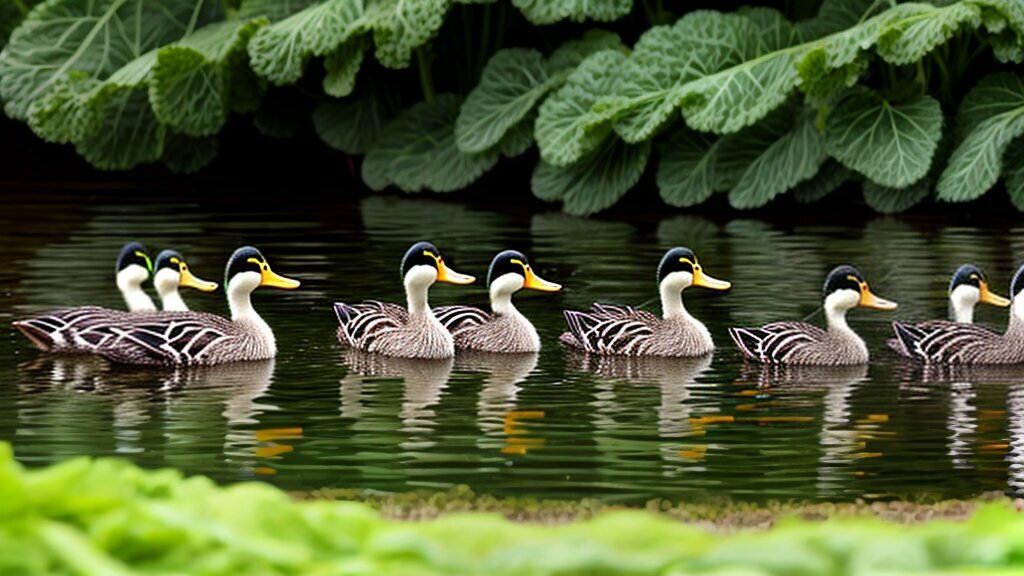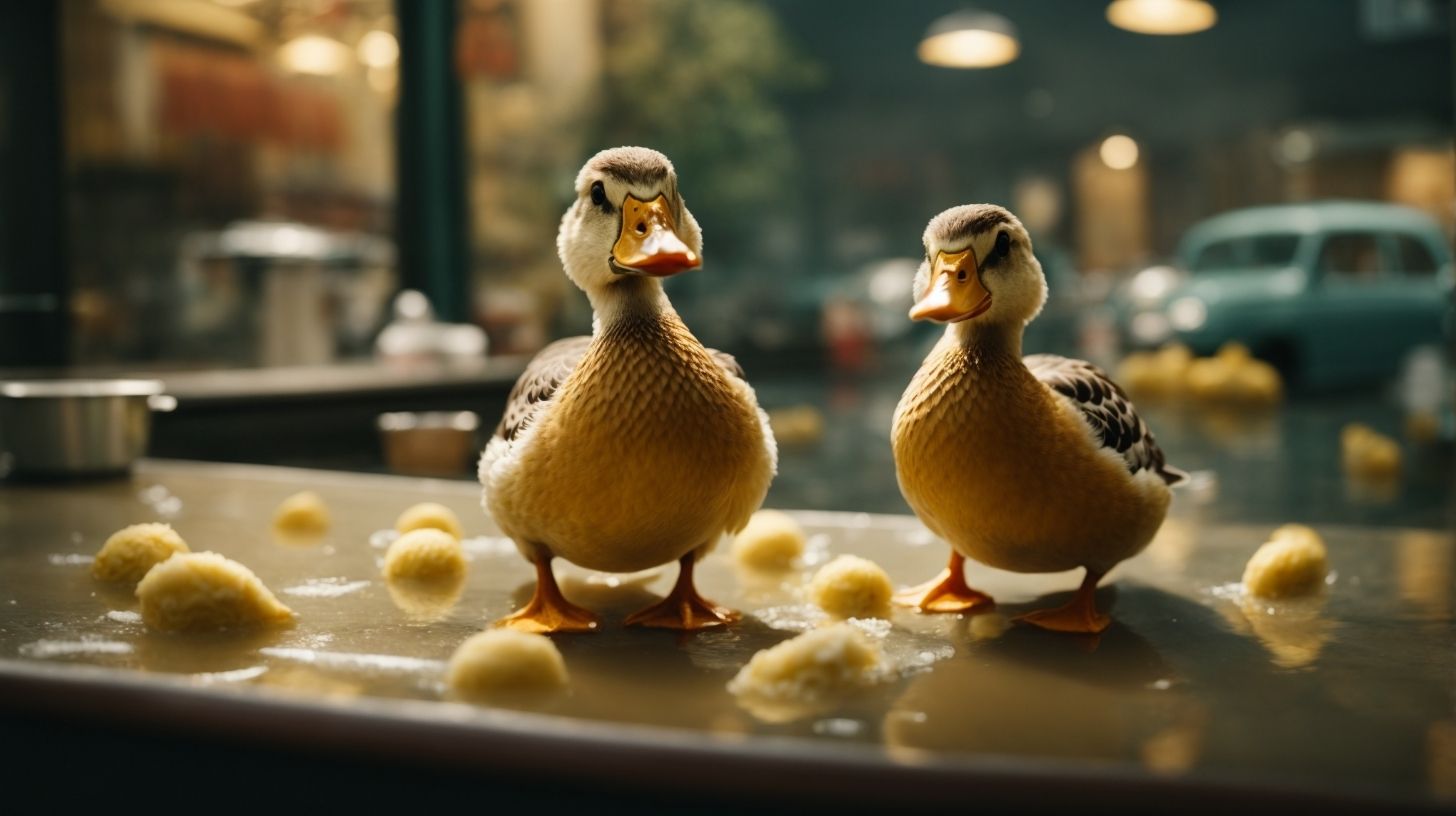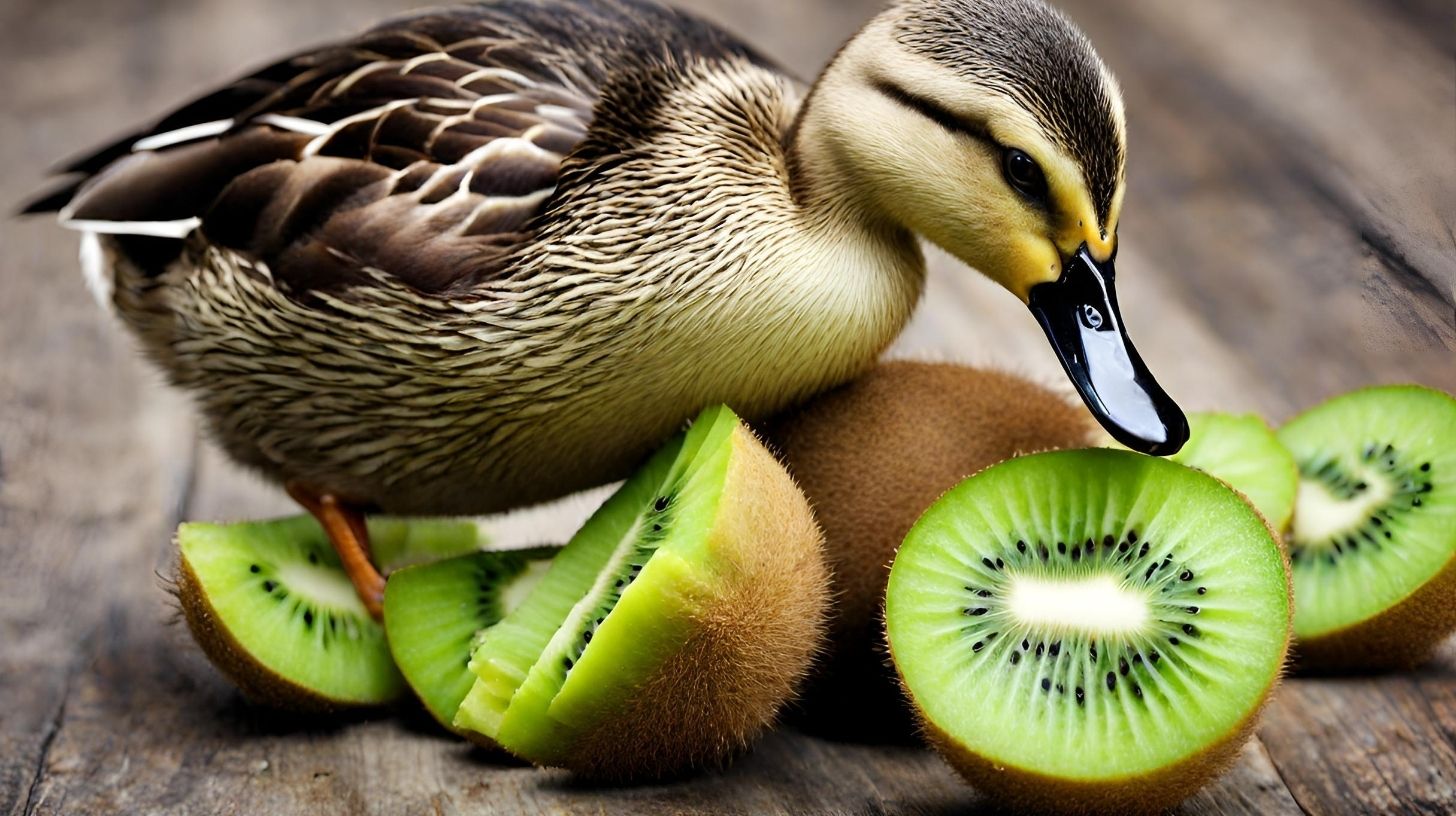Can Ducks Eat Melon? What You Need To Know
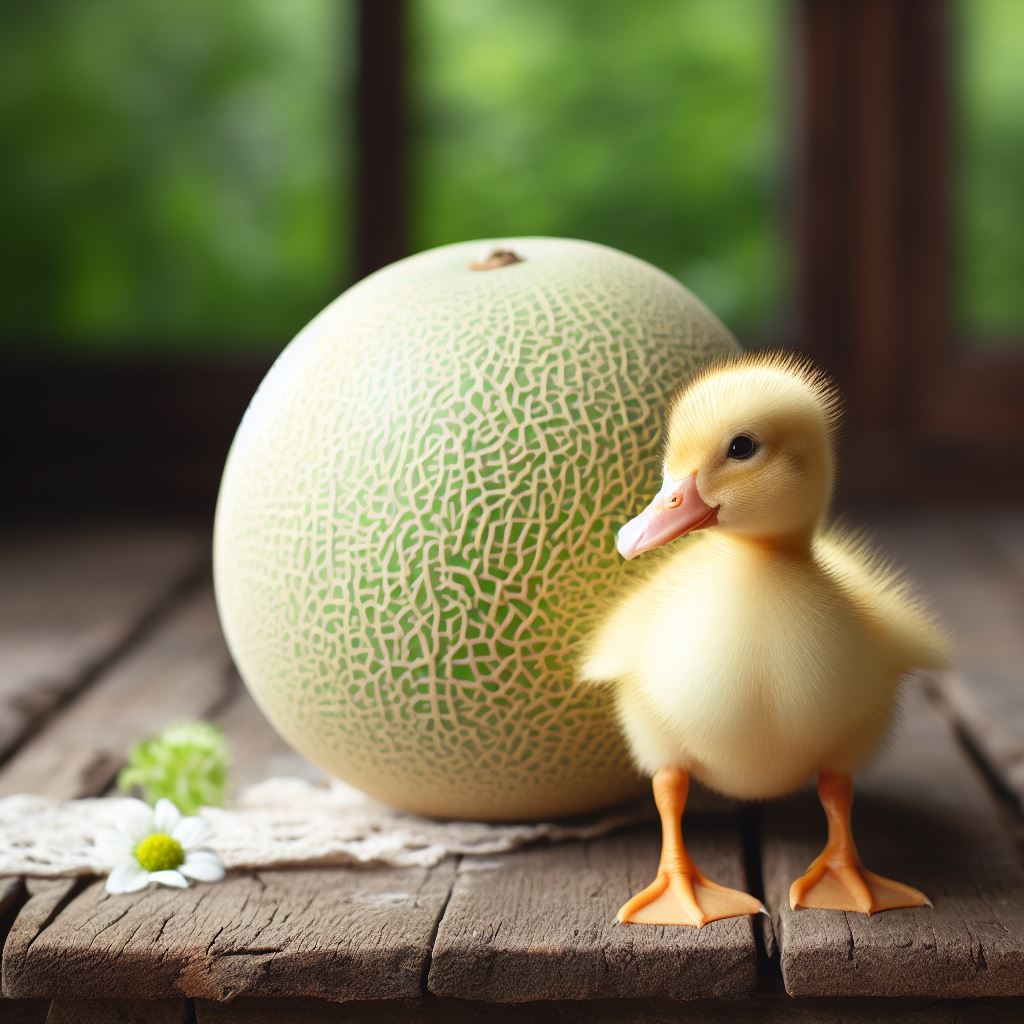
Table of content:
- A Ducky Diet: What Do Ducks Eat?
- Are Melons Safe For Ducks to Eat?
- Do Ducks Like Eating Melons?
- Are Cantaloupes and Honeydew Safe For Ducks?
- How Much Melon Is Safe For Ducks?
- Can Baby Ducks Eat Melon?
- Are Melon Seeds and Rinds Safe for Ducks?
- Can Wild Ducks Eat Melon?
- Frequently Asked Questions About Ducks Eating Melons
- Conclusion
Melon is a sweet and delicious fruit that humans love to eat, especially during the hot summer months. But what about our feathered friends – can ducks eat melon? As responsible duck owners and wildlife enthusiasts, it is important to understand the dietary needs of ducks and how different foods affect them.
This complete analysis will provide helpful insights to determine if melons are in fact safe and healthy snacks for ducks.
Key Takeaways:
- Melons like watermelon, honeydew and cantaloupe are safe for ducks to eat in moderation.
- Seeds and rinds should be removed as they can cause choking or intestinal blockages.
- Melons provide ducks with beneficial nutrients like vitamins, minerals and antioxidants.
- Too much melon can cause digestive upset and diarrhea due to high natural sugar content.
- Ducks cannot live on melon alone – it should be an occasional treat, not a dietary staple.
- Always monitor ducks when offering new foods and discontinue if any adverse reactions occur.
Melon comes in many delicious varieties like watermelon, cantaloupe, honeydew and more. But are these juicy, sweet fruits safe for ducks to eat? Do ducks even like the taste of melons? As responsible duck owners, we want to ensure our feathered pets get optimal nutrition while avoiding foods that could cause them harm.
By analyzing the potential benefits and drawbacks, we can determine if melons should be considered a duck-safe snack or not.
A Ducky Diet: What Do Ducks Eat?
To understand if melons are appropriate for ducks, we first need to look at the dietary requirements and natural feeding behaviors of our web-footed friends. Ducks are omnivores meaning they eat both plant and animal matter. In the wild, ducks eat a diverse diet including:
- Aquatic plants like duckweed, algae and water lilies
- Seeds, grains, grass and vegetation
- Insects, small fish, tadpoles, snails and crustaceans
This varied combination provides ducks with protein, carbohydrates, fiber, vitamins and minerals. Ducks have serrated bills perfect for grasping wet vegetation and filtering food particles from water. They swallow their food whole which is why larger chunks or fibrous textures can pose a choking risk.
Domestic ducks will forage and graze on grass, aquatic plants and insects when allowed to roam. For optimal health, duck owners should provide:
- High-quality duck feed or poultry feed
- Treats like cracked corn, bird seed, vegetable scraps
- Access to fresh, clean water for drinking and dipping
Some human foods like stale bread, popcorn or cheese may be fed safely in moderation. But owners need to be very cautious about introducing new items into a duck’s diet. Some foods can cause toxicity or digestive upset leading to illness or even death in extreme cases.
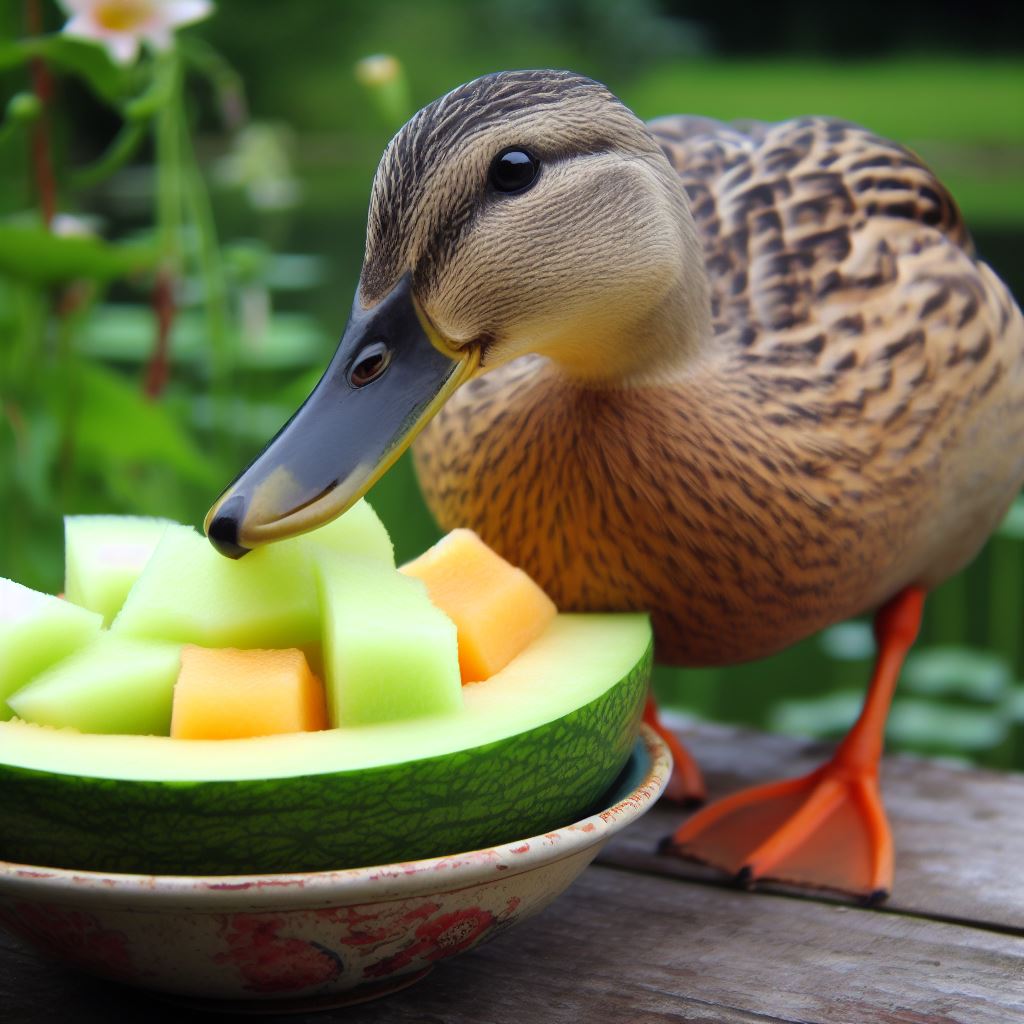 Are Melons Safe For Ducks to Eat?
Are Melons Safe For Ducks to Eat?
Now that we understand the dietary needs of ducks, we can analyze how melons may fit into the equation. The majority of melons including watermelon, cantaloupe and honeydew have a sweet, juicy flesh with a high water content. They are also low in fat and sodium which makes them a healthy human snack. But does that mean they are suitable for ducks as well?
Here are some factors to consider regarding feeding melon to ducks:
Nutritional Value
Melons contain beneficial vitamins, minerals and antioxidants that can contribute to a duck’s health. Key nutrients include:
- Vitamin C – supports immune system function
- Vitamin A – important for vision, growth and development
- Potassium – helps regulate fluid balance
- Antioxidants – reduces cellular damage
The high water content also helps with hydration which is essential for duck health. So nutritionally speaking, melons do provide some advantages.
| Nutrient | Benefit |
|---|---|
| Vitamin C | Supports immune function |
| Vitamin A | Important for vision and growth |
| Potassium | Helps regulate fluid balance |
| Water | Provides hydration |
Natural Sugars
The sweet taste of melons comes from naturally occurring sugars like fructose and sucrose. For humans, melons make a healthy alternative to more processed sweets. But for ducks, excessive refined sugar and carbohydrates can cause gastrointestinal upset.
The natural sugars found in melons are generally fine for ducks in moderation. But overindulging could lead to diarrhea, gas or digestive issues. Owners should limit melon quantities to avoid any excess sugars.
Seeds and Rind
Most melons have small edible seeds and a thick rind or peel on the outside. While human consumers can easily chew and ingest melon seeds, ducks are unable to break down these fibrous materials which can pose a choking hazard or cause intestinal blockages. For safety, seeds and rind should always be removed before feeding melon to ducks.
Pesticides and Chemical Residues
Conventionally grown melons may contain pesticide residues or waxes applied during processing. While thorough washing can help, it can be difficult to completely remove all traces of chemicals. Going with organic varieties when possible is suggested. Otherwise, risks from chemical exposure are minimal if melons are fed in moderation.
Natural Hydration
The water content in melons can assist with duck hydration needs which is a major advantage over dry foods. Ducks require fresh clean water not just for drinking but for grooming and dipping as well. Fruits with high moisture like melon can supplement their aquatic needs.
In summary, most types of melons are considered non-toxic and safe for ducks to consume in moderation. They offer some nutritional pros like vitamins, minerals and hydration. The main risks come from overfeeding leading to digestive issues, and choking on seeds or rind. Taking proper precautions melons can be a healthy treat.
Do Ducks Like Eating Melons?
Duck tastes can vary based on the individual, but most domestic ducks seem to enjoy melons. Here are some signs your ducks like melon:
- Enthusiastic eating and gulping it down
- Quacking excitedly when melon is presented
- Coming quickly to you for the treat
- Cleaning their bill off after eating indicating satisfaction
If your ducks ignore or refuse the melon, it’s likely they just don’t care for the taste, at least for that particular variety. Feel free to try other types like honeydew or cantaloupe to see if they have a preference. Or present melons in conjunction with other favored treats.
Always monitor your ducks’ reactions when offering new foods. Allergies or adverse reactions, though rare, can sometimes occur. Discontinue any items that seem to cause vomiting, diarrhea or other concerning symptoms.
Are Cantaloupes and Honeydew Safe For Ducks?
The two most common melons we see in our grocery stores are cantaloupe and honeydew. Both make refreshing, sweet treats for humans but can ducks eat them too?
Here is a quick comparison:
Cantaloupe
- Soft orange flesh
- Smooth rind with thick netting
- Musky sweet flavor
- High water content
Honeydew
- Pale green flesh
- Smooth creamy rind
- Mildly sweet flavor
- High water content
Both cantaloupe and honeydew have very similar nutritional values and risks to other melons. For ducks the same precautions would apply:
- Only feed ripe, fresh melon – discard any spoiled parts
- Remove rind and seeds
- Give only small portions infrequently as a treat
- Monitor for any signs of digestive upset or allergic reaction
Overall both cantaloupe and honeydew can be fed to ducks safely in moderation. Try offering small samples of each to see if your ducks enjoy one over the other.
How Much Melon Is Safe For Ducks?
When offering any new food, it’s important to limit the portion sizes at first. Duck’s digestive systems are sensitive, and overindulging in even healthy foods can lead to diarrhea or other stomach issues.
Here are some tips on melon quantities for ducks:
- Start with a small slice or piece about 1-2 inches square
- Feed just a few small samples at first to monitor reactions
- Slowly increase the amount if no adverse effects are observed
- Feed melon no more than 1-2 times per week as a treat
Ideally, melons should make up no more than 5-10% of total dietary intake. Rotate with other healthy treat options like berries, chopped veggies, birdseed and greens.
Always supervise ducks when offering melons or any new foods. Remove immediately if you observe signs of choking or intestinal distress like vomiting or diarrhea.
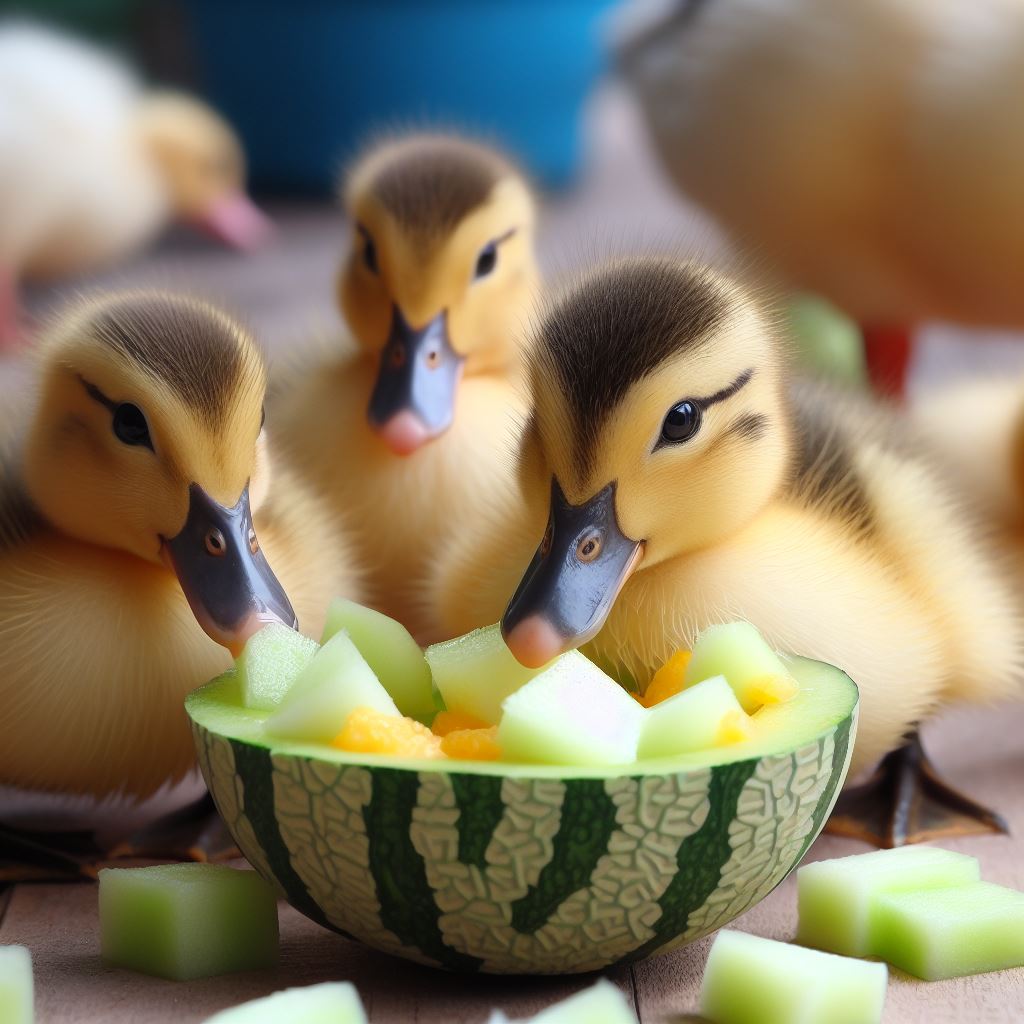 Can Baby Ducks Eat Melon?
Can Baby Ducks Eat Melon?
Young ducklings require high protein feed for proper growth and development. Commercial chick starter feed or crumbles specifically formulated for juvenile waterfowl provide complete nutrition.
Once ducklings mature past the first few weeks of life, small samples of treats can be introduced slowly one at a time. Here are some tips for feeding melons to baby ducks:
- Wait until ducklings are 4-6 weeks old before offering any treats
- Remove all rind, skin or seeds that could cause choking
- Chop melon flesh into tiny pieces easier for them to swallow
- Start with just 1-2 tiny pieces per duckling
- Gradually increase small amounts if no digestive issues
- Do not allow ducklings to fill up on treats – ensure they eat enough duck starter feed each day
Monitoring baby ducks closely anytime new foods are provided is essential. Hold off on offering melon until your ducklings are feeding well and thriving on their starter feed. Consult your duck health guide or veterinarian for age-specific feeding advice.
Are Melon Seeds and Rinds Safe for Ducks?
As mentioned previously, ducks are unable to properly digest larger seeds or fibrous peels due to their whole-swallowing feeding behavior. While melon flesh is fine for ducks, the seeds and rind require some caution.
Melon seeds are small with a tough outer coat. Eating more than a few could pose a choking risk or potentially cause intestinal blockages if quantities are excessive.
The thick rind is also too difficult for a duck’s digestive system to break down. Pesticide residues or wax coatings may linger on the outer skin as well.
For safety, always peel and seed melons before feeding to your ducks. Discard the seeds and rinds in your regular compost. Only offer your ducks the soft inner flesh chopped into bite-size pieces.
Taking these simple precautions allows ducks to enjoy the healthy benefits of melons without risking digestive upset or illness.
Can Wild Ducks Eat Melon?
Whether at the park or lake, people often enjoy feeding the wild ducks and geese they encounter. And with melons being a favorite human food, you may wonder if wild ducks can eat them too.
The same general guidance would apply to wild waterfowl – melons are not toxic or immediately harmful in small amounts. However, there are a few added considerations with wild ducks:
- Natural foraging provides a balanced diet
- Sudden excess treated foods can cause issues
- Limit feeding to avoid dependency/aggression
- Monitor carefully and cease any negative impacts
Many areas actually prohibit public duck feeding as it can cause overcrowding and water pollution issues. Wildlife officials recommend observing and enjoying ducks in their natural habitat without disruption.
If you do opt to offer wild ducks a few small melon pieces very occasionally, be sure to remove all rind and seeds first. And never offer moldy or spoiled melons which could cause serious illness if consumed.
Frequently Asked Questions About Ducks Eating Melons
Can ducks eat watermelon?
Yes, ducks can eat watermelon as an occasional treat. Remove all seeds and rind first, and give just a few small chopped pieces at a time.
Can ducks eat cantaloupe?
Yes, cantaloupe is safe for ducks when seeds and rind are removed. Give only small portion sizes periodically to avoid excess sugar.
Can ducks eat honeydew melon?
Honeydew melon is safe for ducks if you take the same precautions – remove rind/seeds and feed in moderation.
Can baby ducks eat melon?
Young ducklings should not be given any treats until 4-6 weeks old. Even then melon should be restricted to an occasional bite-sized piece.
Do wild ducks eat melon?
Wild ducks will eat small melon pieces if offered, but their natural foraging provides a complete diet. Unnecessary feeding of wild ducks is discouraged.
Are melon seeds safe for ducks?
No, ducks cannot properly digest seeds which can pose a choking risk or cause intestinal blockages. Always remove seeds before feeding melon.
Can ducks eat melon rinds?
No, the fibrous rind is unsuitable for ducks. Be sure to peel the rind off completely and discard before feeding melon flesh.
Can ducks eat too much melon?
Yes, overfeeding melon or any sugary treat can lead to diarrhea, gas or other digestive upset. Limit melon to occasional small treat portions.
What fruits can ducks eat?
In addition to melon, ducks can safely enjoy berries, apples, pears, bananas, grapes, oranges and other fruits in moderation. Always remove any pits, seeds, stems or rinds first.
Is melon good for ducks?
Melon provides hydration and some beneficial nutrients for ducks. Feed occasionally as a treat in small amounts along with poultry feed and fresh water for a balanced diet. Monitor reactions closely.
Conclusion
Melons can be a safe and healthy treat for ducks if certain precautions are followed. Remove all rind, peels and seeds first since ducks are unable to digest them.
Feed only fresh ripe melon in small quantities periodically to avoid issues from excess sugar. Combine with a quality main diet and fresh water. Discontinue use if any concerning symptoms develop.
Following these simple guidelines will allow ducks to enjoy small melon snacks safely as part of a balanced diet. Just be sure to keep a watchful eye to ensure the treatment does not cause any digestive upset or other problems. With some care and common sense, melons can provide ducks with a fun, hydrating and nutritious addition to their usual fare.
Welcome. I’m Adreena Shanum, the proud owner of this website, and I am incredibly passionate about animals, especially poultry. I founded adreenapets.com as a labor of love, stemming from my desire to share my knowledge and experiences with poultry enthusiasts worldwide.


